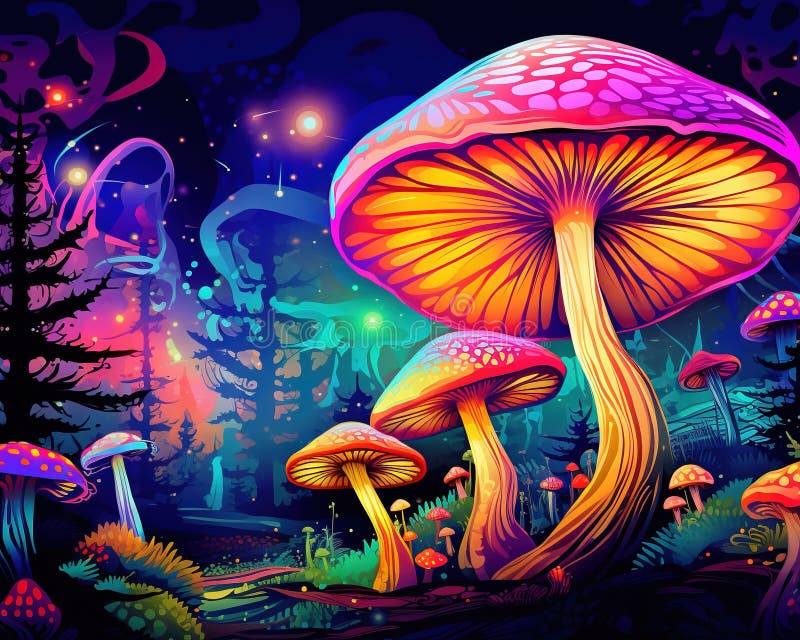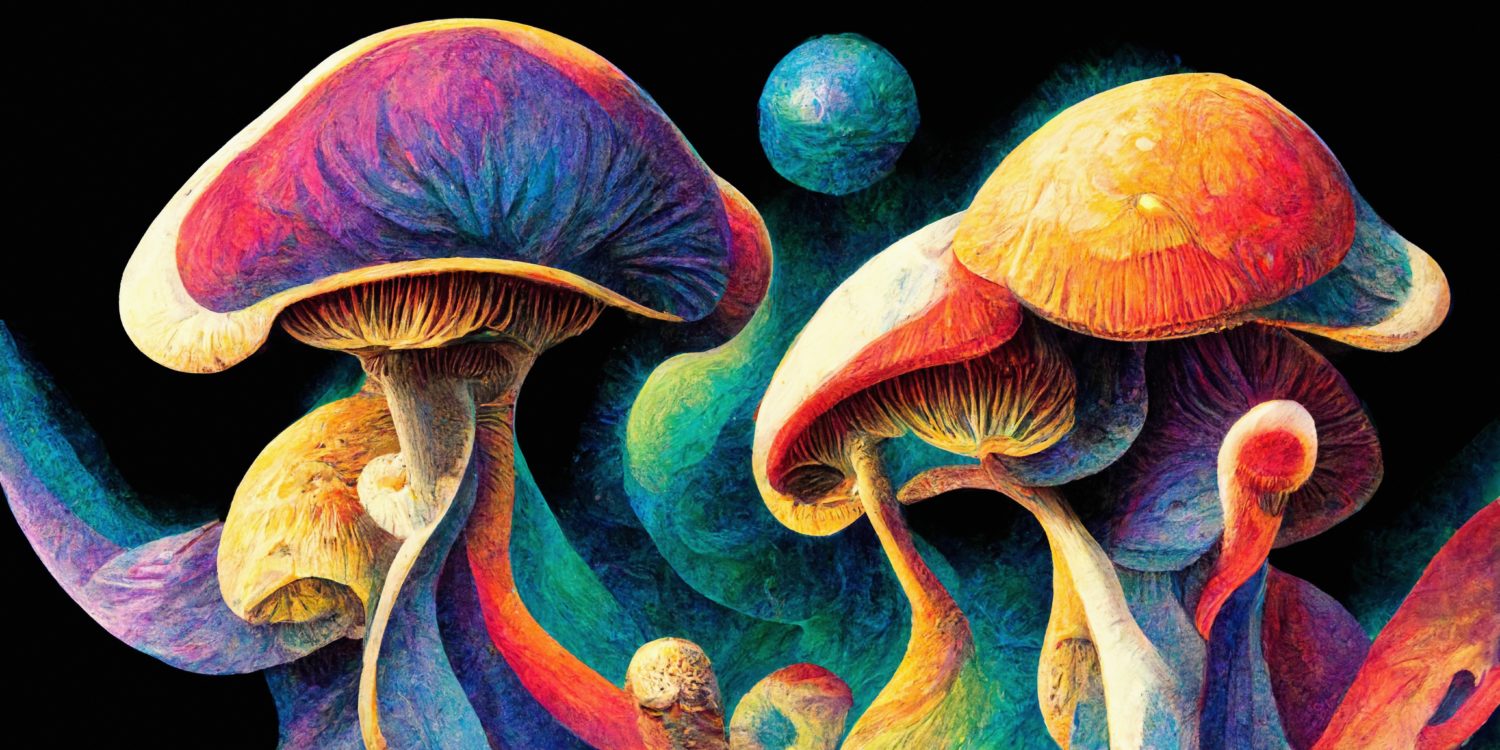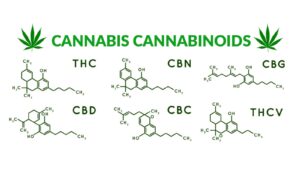Mushrooms have been a part of human culture for thousands of years, used in traditional medicine, spiritual rituals, and culinary delights. In recent years, the intersection of biohacking with psychedelic mushrooms and functional mushrooms has gained momentum, offering a natural way to enhance cognitive function, mental well-being, and overall health. This ultimate guide dives into the science, benefits, and risks associated with these powerful fungi.
The Science Behind Mushrooms and Biohacking
Biohacking is the practice of optimizing the body and mind through nutrition, technology, and lifestyle choices. Among the many biohacking tools available, mushrooms stand out for their potent effects on cognitive function, immunity, and emotional well-being. The two primary categories that play a role in biohacking are psychedelic mushrooms and functional mushrooms.
Psychedelic mushrooms, such as Psilocybe cubensis, contain psilocybin, a psychoactive compound that interacts with serotonin receptors in the brain. Functional mushrooms, like Lion’s Mane, Reishi, and Cordyceps, are packed with bioactive compounds that support brain health, immunity, and endurance.
The Power of Psychedelic Mushrooms in Biohacking
Psychedelic mushrooms have been the focus of extensive scientific research, particularly for their effects on brain function, creativity, and mental health. Studies suggest that psilocybin can significantly enhance neuroplasticity, the brain’s ability to form new neural connections.
According to a 2020 study published in Nature Medicine, psilocybin therapy was found to reduce symptoms of depression by 50% in patients with treatment-resistant depression. Another study from Johns Hopkins University showed that a single high-dose session of psilocybin led to long-term positive changes in personality traits, particularly openness and emotional stability.
Beyond mental health, microdosing psilocybin—taking sub-perceptual doses—has gained popularity in the biohacking community. Enthusiasts report improved focus, creativity, and mood without experiencing a full-blown psychedelic trip. A 2019 study published in Frontiers in Psychology found that microdosing psilocybin improved cognitive flexibility and problem-solving abilities, suggesting it could be a powerful tool for biohackers looking to optimize brain function.
Functional Mushrooms: Nature’s Superfoods for Biohacking
Functional mushrooms, though non-psychoactive, offer a different kind of brain-boosting potential. Packed with polysaccharides, beta-glucans, and antioxidants, they support cognitive function, immunity, and overall well-being.
Lion’s Mane (Hericium erinaceus) has gained recognition as a nootropic, meaning it enhances cognitive function. Research in The Journal of Agricultural and Food Chemistry found that Lion’s Mane stimulates nerve growth factor (NGF), promoting the regeneration of brain cells and improving memory and concentration.
Reishi (Ganoderma lucidum), often called the “mushroom of immortality,” is revered for its adaptogenic properties, helping the body combat stress and fatigue. A study in Phytotherapy Research concluded that Reishi significantly reduces anxiety and improves sleep quality, making it a vital tool in stress management and longevity-focused biohacking.
Cordyceps is another functional mushroom widely used for enhancing physical performance and endurance. A study in The Journal of Alternative and Complementary Medicine found that Cordyceps supplementation increased VO2 max (oxygen uptake capacity) in athletes by 7%, making it a favorite among endurance biohackers.
The Synergy of Psychedelic and Functional Mushrooms in Biohacking
The combination of psychedelic mushrooms for neuroplasticity and functional mushrooms for long-term brain health creates a powerful synergy in biohacking. Psychedelics can reset neural pathways and enhance creativity, while functional mushrooms help sustain these cognitive gains by nourishing the brain and reducing inflammation.
For example, many biohackers incorporate Lion’s Mane alongside microdosing psilocybin, as both contribute to neurogenesis. This combination is believed to accelerate learning, memory retention, and overall cognitive resilience.
The Growing Market for Mushroom-Based Biohacking
The market for functional and psychedelic mushrooms has seen rapid growth in recent years. According to a 2023 market analysis by Grand View Research, the global functional mushroom market is expected to reach $19.33 billion by 2030, growing at a 9.8% compound annual growth rate (CAGR). The increasing demand is fueled by consumer interest in natural wellness solutions, cognitive enhancers, and immunity boosters.
On the psychedelic front, the legal landscape is shifting. Countries like Canada, the Netherlands, and parts of the U.S. (such as Oregon and Colorado) have decriminalized or legalized psilocybin therapy, leading to a projected market value of $6.85 billion by 2027 as research and regulatory changes continue to evolve.

Risks and Considerations in Mushroom-Based Biohacking
While the benefits of biohacking with mushrooms are well-documented, it’s essential to approach this practice with caution. Psychedelic mushrooms, in particular, can cause intense psychological effects, including hallucinations, paranoia, and anxiety in high doses.
A study published in The Lancet Psychiatry emphasized the importance of set and setting—the mental state and environment in which psychedelics are consumed. For those new to psilocybin, a controlled and guided experience with a trained professional is recommended to ensure safety and positive outcomes.
Functional mushrooms, on the other hand, are generally safe but may interact with medications. For example, Reishi has blood-thinning properties, which could pose risks for individuals on anticoagulant therapy. Consulting a healthcare professional before integrating these mushrooms into a biohacking routine is advised.
The Future of Mushroom-Based Biohacking
The integration of psychedelic mushrooms and functional mushrooms into biohacking is still in its early stages, but the potential is undeniable. With increasing research, shifting regulations, and greater public awareness, mushrooms may become a mainstream tool for cognitive enhancement, mental health, and longevity.
Companies are now developing precision-dosed mushroom supplements and AI-driven biofeedback systems to track the effects of mushrooms on cognitive performance. As technology and natural medicine converge, the possibilities for biohacking with mushrooms will continue to expand.
Final Thoughts
Biohacking with psychedelic mushrooms and functional mushrooms offers a unique and science-backed approach to optimizing the mind and body. From psilocybin’s profound effects on neuroplasticity and mental health to functional mushrooms’ ability to support brain function, endurance, and immunity, these natural tools hold immense promise for those seeking to unlock their full potential.
As with any biohacking strategy, education, responsible use, and proper guidance are key. Whether you’re looking to enhance creativity, boost cognitive function, or improve overall well-being, mushrooms may be the next frontier in human optimization.
At NanoHempTechLabs, we bring you premium functional and psychedelic mushroom products designed for biohackers, wellness enthusiasts, and forward-thinking businesses. From Lion’s Mane for cognitive enhancement to psilocybin microdosing solutions, our high-quality wholesale offerings help elevate mind and body naturally. Backed by science and crafted with precision, our products ensure peak performance, mental clarity, and holistic well-being.
Partner with us to revolutionize the wellness industry! Schedule a call today to explore wholesale opportunities and bring cutting-edge mushroom-based biohacking solutions to your customers.
Reference:
- Cha, S., Bell, L., & Williams, C. (2024). The relationship between mushroom intake and cognitive performance: an epidemiological study in the european investigation of cancer—norfolk cohort (epic-norfolk). Nutrients, 16(3), 353. https://doi.org/10.3390/nu16030353
- Paassen, J. and Kostwinder, L. (2024). The cognitive-enhancing effects of lion’s mane in a rodent model of attention-deficit hyperactivity disorder (adhd): a research protocol. URNCST Journal, 8(11), 1-6. https://doi.org/10.26685/urncst.653
- Rootman, J., Kryskow, P., Harvey, K., Stamets, P., Santos-Brault, E., Kuypers, K., … & Walsh, Z. (2021). Adults who microdose psychedelics report health related motivations and lower levels of anxiety and depression compared to non-microdosers. Scientific Reports, 11(1). https://doi.org/10.1038/s41598-021-01811-4





